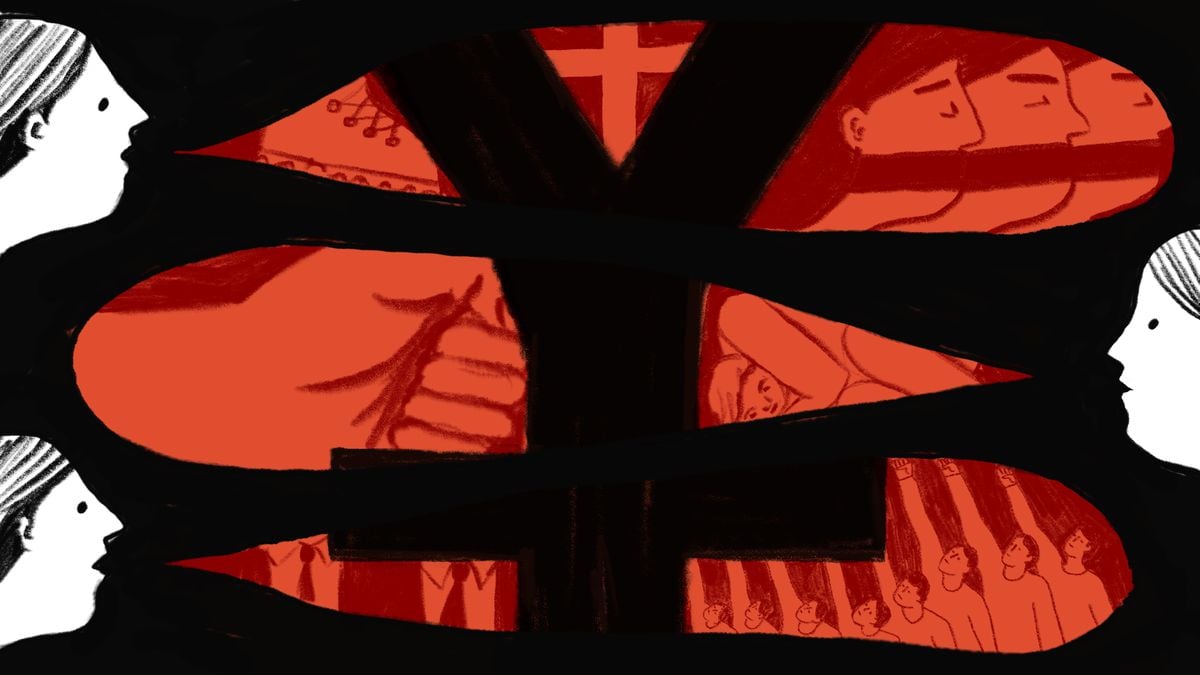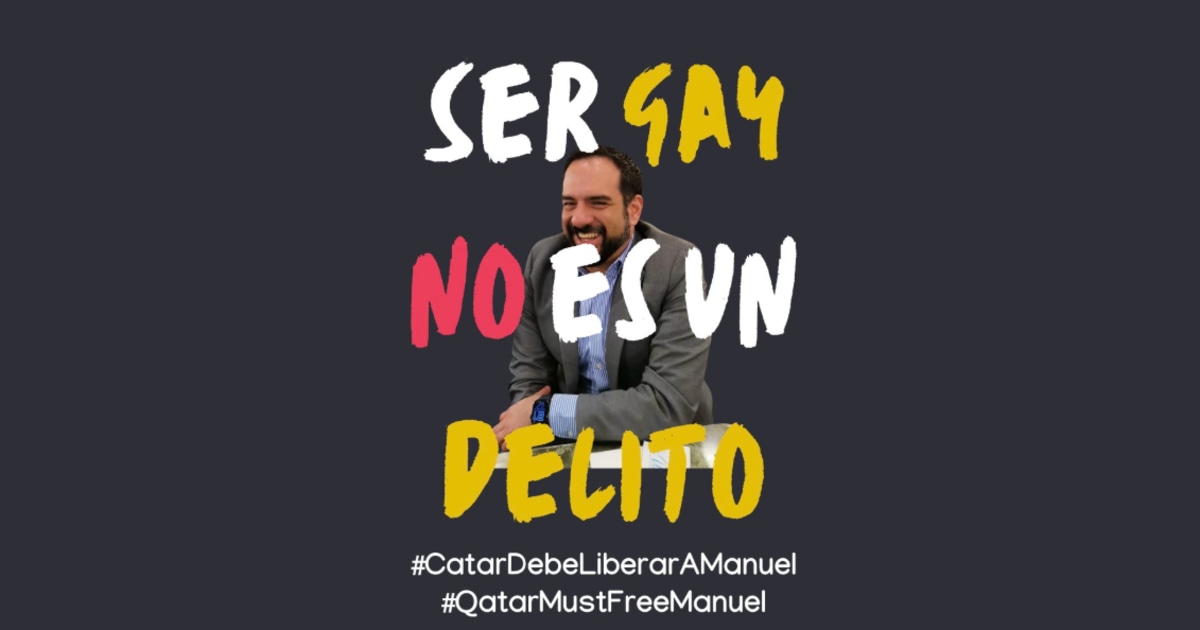Mexico has heard about El Yunque for decades, but has never been able to put a name or face to it.
Some have dared to raise the accusatory finger, assuring that such a person is a member of the ultra-conservative and violent religious sect, which has spread its tentacles in the politics of Latin America and Spain, in the case of the PAN in Mexico or Vox, in Spain. .
But not even on the deathbed, those who have been part, dare to confess it.
Only a few voices admit to having been involved.
The secrecy is mainly due to a promise made under torture that they make upon entering: the subject will never be discussed in public.
People close to and who were within the Mexican sect tell EL PAÍS how the process to enter was,
Diego Gil joined El Yunque in 2002, when he was just 11 years old.
That is not his real name, which he prefers to keep confidential, but the pseudonym that the organization gave him for "security reasons."
He, he tells in an interview with this newspaper, was recruited when he was in the Boys Scouts, where members of the sect operated.
They were approaching their 50th anniversary - it was founded in 1953 in Puebla - and they wanted to double the number of members.
His first step was to enter something they called "La Pre": a kind of secret organization simulation in which, if they did well, they could enter El Yunque.
“It was there where they beat me, where they taught me to use a weapon, where they taught me to torture,” he says.
Gil spent eight years within the secret organization, half of them within "the radical branch" of a sect already with ultra-conservative and right-wing values.
“The conclusion I came to after eight years was that what they are doing with you is abusing your mind.
They turn you into a war machine.
I was a war machine that in the name of Christ could do anything.
I did terrible things.
When you go out you discover that you are a victim and you discover yourself as an abused person, because that is what the organics are [as the militants are called], we are people abused by a perverse institution, ”he says in a video call conversation.
The purpose of the Anvil is "to impose the reign of Christ on the Society by any means."
For this, they instill in them that the entire organization is based on three pillars: primordiality, they have to give up their lives for Christ;
reserve, they cannot speak in public about the organization;
and discipline, to lead a structured life and execute physical training.
"Some of us learned to handle the Filipino sticks, others in other times handled the chacos very well to hit communists," says Gil.
In order to enter El Yunque, he had to pass a three-day initiation course that consisted of a kind of ritual inherited from the 19th century.
“It is a course in which they kidnap you, they send you to a place, they beat you up, they don't let you sleep, you don't eat, you don't drink water.
Suddenly they point the gun at your forehead pretending they are enemies of the organization”, recalls the former member of the sect.
Once inside, they were called "combat warrior monks."
Some of the orders that Gil received in the years that he was active included physically confronting Freemasons and members of Opus Dei, infiltrating the state and federal congresses to attack different groups or attacking those who were considered "enemies", such as gays, socialists or pro-abortion organizations.
“It never touched me that they asked to kill people, or to torture.
But in other times those things did happen.
The man remembers that much of the work they did was intelligence work.
They followed people, went to events to take pictures, recorded meetings, and reported who spy targets hung out with.
After four years of being inside, they made him join the "radical branch" of El Yunque: the Crusaders of Christ the King, a religious organization of diocesan right that had recognition from the Vatican, which was also present in Spain and continues to be active in Mexico. .
There, Gil spent until 2010 preparing to be a priest while working for El Yunque.
“We were criminals,” he recalls, “many of the acts of violence and sabotage that I had to do, I did as a crusader, we hung up our cassocks, we went to Congress to file a lawsuit and then they forgot that we were religious.”
Gil became Secretary of the Interior, a medium position in the internal structure of the sect.
He handled secret information, was in charge of part of the teaching that was given, and organized the initiation ceremonies.
The membership process included, for example, checks on the naked body of the prospective member, to certify that he was not "an infiltrated Jew."
The ceremony was a secret event to which they took the novices blindfolded, made them say the rosary and made a series of threats: “You entered and they told you: 'Welcome to the compound of brotherhood and struggle.
If your intention were to betray us, it would be better for you not to have met us.
Gil's last year at El Yunque was the most difficult.
Several things made noise and his questioning of his superiors had earned him harsh punishments.
"One day I couldn't take it anymore, I packed my bags and disappeared."
Despite all the physical abuse he suffered, he maintains that the worst was the psychological abuse.
Since then he has been able to rebuild his life, but it was hard for him to leave those eight years behind.
“When you leave a secret organization you have no one to turn to because you can't go to your neighbor and say: 'Hey, I just came out of a radical secret organization that taught me to torture.
Help me, ”he recalls.
"You are alone with the world."
El Yunque, in the shadows of power
The Mexican sect acted for decades in the shadows, but many knew of and endorsed its existence and activities.
In addition to dozens of civil associations, created by them to use a facade, with which they operated against abortion, feminism or LGBT rights, they had made space in universities, business confederations and political parties.
Among the ranks of El Yunque were soldiers, professors, businessmen, bishops, and journalists, according to the accounts of several people who were close to the organization.
On the political scene, they were mostly concentrated in the National Action Party (PAN), where a fringe of the sect currently operated.
Within the party, they promoted different candidates throughout the country for decades.
They even came to have national presidents of the PAN.
The time in which they enjoyed more power was during the presidency of Vicente Fox, in which they had members within the Cabinet.
The most notorious case is the then Secretary of the Interior, Carlos Abascal, whom both Gil and other party sources who prefer to remain anonymous point to as an organic member.
Then, between 2006 and 2012, they managed to infiltrate the governments of three states: Morelos, Guanajuato and Jalisco, according to several sources.
But since members of El Yunque do not publicly accept their membership in the group, it was difficult even for PAN leaders to distinguish between them within the party.
Gil calculates that at that time there were about 10,000 passive members, as those who had already left the military were called.
Most of the militants were children of other members who were in the ranks.
But since those years the presence and power of El Yunque has been on the decline.
Young people today "can't take a long time," says Gil, because unlike other times "there is more access to information to question what is wrong."
PAN sources have explained that the sect has also withdrawn within the party after they lost the presidential elections in 2012 and 2018 and turned into opposition.
The sect exposed
The researcher Luis Ángel Hurtado Razo, from the Faculty of Political and Social Sciences of the National Autonomous University of Mexico (UNAM), specialized in secret societies, points out that since this far-right group became evident thanks to journalistic works, it is not characterized by a clandestine militancy.
“El Yunque has become a more open and public group that holds power through civil associations,” he says in an interview.
That right-wing radicalism now "is well seen by the sector and that can be translated into political support."
Some of the organizations that operated as fronts, such as the Pro-Life Association or the National Front for the Family, are still very active today.
For Julián Cruzalta, from UNAM's UNESCO Chair in Human Rights and a member of Iglesias por la Paz, El Yunque has not disappeared, but has been transformed.
The image they give now, says Cruzalta, is of modern young people with a high academic level who blend in with various institutions and associations.
“Today they are more pragmatic.
This image of formal people no longer applies, it is in the speech where one recognizes them”.
The rhetoric, however, continues to appeal to the usual, he says: the fight against abortion and equal marriage, and the defense of traditional family values.
subscribe here
to the EL PAÍS México
newsletter
and receive all the key information on current affairs in this country









